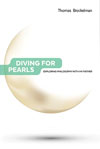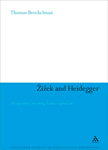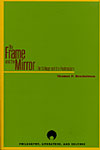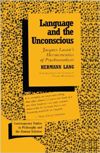Quick links
Part 1, Abstract and The End of Man
Part 2, Psychoanalysis in The Order of Things–You are here.
Part 3, Seminar XIII and the object a
Part 4, Window not mirror: Las Meninas
Part 5, The Street: Lacan reads Balthus reading Velázquez
Part 6, The poetics of the window: truth of the analyst
Part 7, Conclusion, References, Photo Credits
2 Psychoanalysis in The Order of Things
Now, I don’t indicate this problem with The Order of Things simply as an essay in formal criticism; my interest here is in the way that this formal problem leads us to a very specific question—namely, to the status of psychoanalysis for Foucault. Of course, the discussion of Freudian and Lacanian analysis in Foucault’s 1966 text is striking for its sympathy for and insight into analysis—a position that largely disappears in Foucault’s later work. But, because it leads to the precise point where the ‘‘formal’’ problem of history is joined, the context of Foucault’s sensitive discussion demands exfoliation; and that is, namely, the question of ‘‘finitude’’ and the ‘‘analytic of finitude.’’ If the power of human science derives from its capture of the Cartesian subject’s heterogeneity to all representation in one or another ‘‘excessive’’ force—‘‘history,’’ ‘‘labor,’’ ‘‘life’’—then the ‘‘analytic of finitude’’ is something like the reverse of this power. As Foucault puts it, it is the insistence that every advance in conscious science of ‘‘man’’ actually relies on an inexhaustible ‘‘unconscious’’ whose very excess over representation fuels it.6 Moreover, he traces finitude itself as a modern concept to precisely this excessiveness to representation now discovered by science: for example, if the historicity of history disallows its final representation in a chart or table, then ‘‘finitude’’ names the temporal unconscious—the human ‘‘Event’’ underlying all histories—which explains this ‘‘fact.’’ Which means, of course, that the analytic of finitude first of all ‘‘establishes a stable sojourn’’ for modern life—giving it the reassuring form that Foucault, borrowing a phrase of Kant’s refers to as the ‘‘slumber of thought.’’7
On the other hand, though, ‘‘finitude’’ marks for Foucault the site of maximum instability within the age of humanism and it is also precisely the site of Freudian and Lacanian psychoanalysis. One can already hear this alternative evaluation of modernity in Foucault’s usage of the terms ‘‘conscious’’ and ‘‘unconscious’’ to discuss the development of modern science—in the necessity that the key concepts of a dynamic nature and human nature should be retrieved from the dark space of the subject’s heterogeneity to every representation. However, acknowledging the positive sense of ‘‘the analytic of finitude’’ becomes most pressing in the few pages on ‘‘The Human Sciences’’ that Foucault devotes explicitly to psychoanalytic practice: in the analytic situation, writes Foucault, the analysand is made to confront her/his finitude in a manner precisely opposite to the prevailing practices of other modern sciences: the point is not to mine finitude’s excess for new forms of consciousness but to come, somehow, face to face with ‘‘death, desire and Law’’ themselves—with the constitutive nature of excess for every self-understanding, every representation. In those pages Foucault gives us the full picture of the de-stabilizing effects of psychoanalytic practice, practice which he describes as ‘‘unmak(ing) that very man who is creating and re-creating his positivity in the human sciences.’’8
In other words, ‘‘finitude’’ both marks the site of a transcendental source for modern knowledge—one which is to be overcome when ‘‘man’’ is ‘‘erased’’ ‘‘like a footprint upon the sand’’—and indicates the point of contestation for ‘‘man,’’ against the ‘‘slumber of thought.’’ Foucault commits himself both to an account of history which limits finitude to the moment of modern science, a moment beyond which we must pass, and to an understanding of psychoanalysis that sees its contestation of modern humanism as exemplary of precisely what Nietzsche means in suggesting ‘‘the death of man’’ and the birth of the superman. Which is it to be?
Go to Part 3, Seminar XIII and the object a.
7 Foucault (1966, p. 385).
8 Foucault (1966, p. 379).




 Language and the Unconscious: Lacan's Hermeneutics of Psychoanalysis
Language and the Unconscious: Lacan's Hermeneutics of Psychoanalysis

